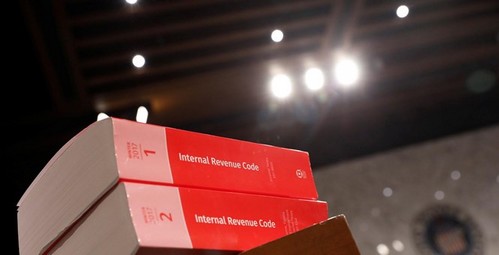The Real Reason Democrats Hate Losing the State and Local Tax Deduction
If you have ever wondered why leaders of liberal cities and states become giddy at any new spending opportunity – investments into light rail infrastructure, social programs for illegal aliens, public schools that look like palaces, billion-dollar sports stadiums – it is not because they are more public-minded than Republicans, or possess an innate sense of altruism. It is because such projects get them re-elected, especially when people other than their constituents are picking up the tab. And, thanks largely to the State and Local Tax (SALT) Deduction for federal income tax purposes, that is exactly what is happening.
In the current federal tax code, SALT deductions allow individuals to deduct state and local taxes, including property taxes, from their federal returns. On the surface, this seems like a great idea, as it generally reduces tax burdens, especially for those living in high-tax localities. At its core, however, the deduction is more a clever burden-shifting scheme to make it easier for state and local governments to over-spend, than it is a way to ease the burden on federal taxpayers.
Since state and local taxes can be deducted, the tax burden is shifted from those governments to the federal government, which in turn makes up for this lost revenue by keeping taxes higher on the rest of the country. In effect, taxpayers in low-tax states and cities, like those in the South, are forced to subsidize the lavish public spending of liberals in New York, New Jersey, Connecticut, and California, who have little incentive to reduce the local taxes that fund their pet projects. It is much like making charitable donations online using someone else’s credit card. It does not make you Robin Hood. It makes you a charlatan, which is why rather than pay the bill, the millionaires who helped put these Democrats in power, would rather flee like cowards.

It also makes for a very sticky wicket when it comes to the GOP’s current tax reform proposals, which hinge on finding ways to help offset the “costs” of reducing federal taxes.
Eliminating SALT deductions would make a sizeable dent in this gap; potentially $1 trillion in revenue over 10 years. Yet, the objections of Democrats, and even some Republicans from the states most impacted, threaten to derail the entire process because of the political ramifications of exposing taxpayers, for the first time, to the true costs of their elected officials’ fiscal irresponsibility at the local level.
This also illustrates a perennial problem with every modern tax cut bill. Our massive and long-standing tax system is built almost entirely around political favors and deductions. Until we have a complete overhaul of the entire tax system, it will remain extremely difficult, if not next to impossible, to do completely away with any deduction of any meaningful significance, because someone’s prized ox is bound to be gored with every move to drop or scale back a deduction; or just as likely, a new one is added in its place as Congress negotiates with the hold-outs.
In an ideal scenario, Republicans would remember what it is to have a spine, and perhaps we might see real reform, such as a flat tax, where the only debate would be what the new tax rate should be, what should be the annual standard deduction that replaces every other deduction promised over the years as a political handout; and bring spending down to the level necessary to operate within the monies raised by the flat tax.
Of course, even in the ideal scenario, spending at all levels of government remains the central problem. Out-of-control spending at the local level is what causes higher taxes that makes eliminating SALT deductions so controversial. Out-of-control spending at the federal level is why Republicans are struggling to pay for tax reform by only eliminating deductions. And, without a plan for cutting spending – a long-forgotten ideal even of many self-styled congressional “conservatives” – the tax rates proposed in this tax reform are the best we can hope for, as either automatic trigger increases kick in 10 years down the road or the inevitable deficit catastrophe forces rates back up.
And, were this to happen, the GOP would rightfully deserve the fallout for its refusal to address spending. Notwithstanding this dilemma, tax reform is so badly overdue that even without spending cuts in place yet to offset the deficit, it is a worthwhile first step. But, it cannot be the last step either. Until the GOP gets serious about cutting spending, shirking this responsibility in the short term will have even greater consequences in the long-term – unfortunately a perspective not often exhibited in Washington.





